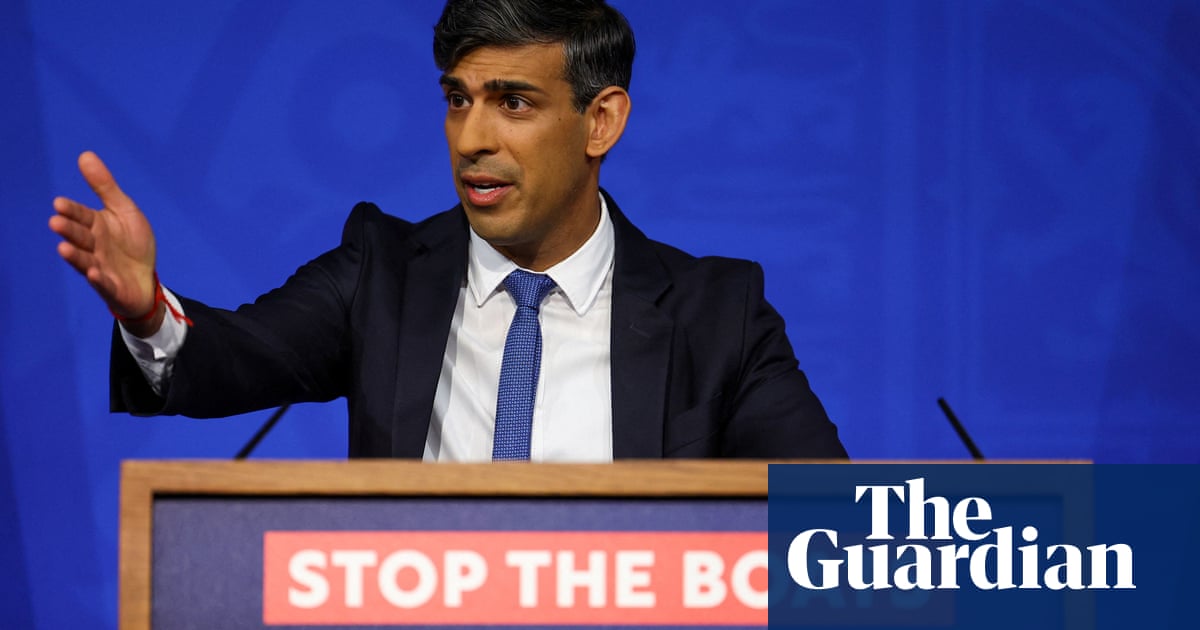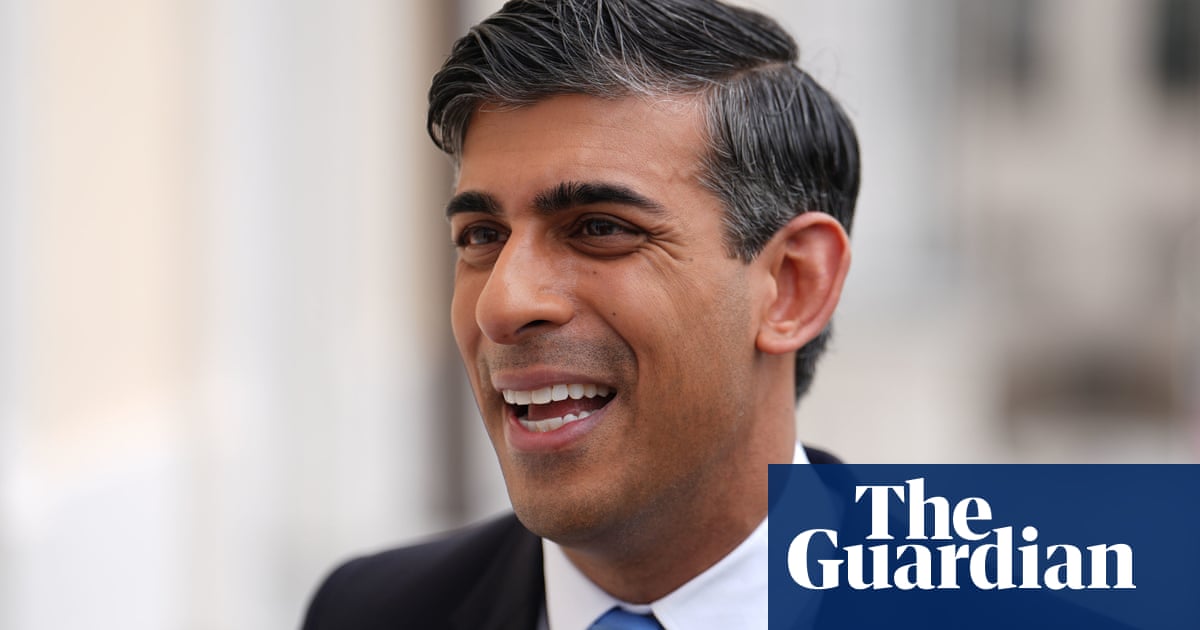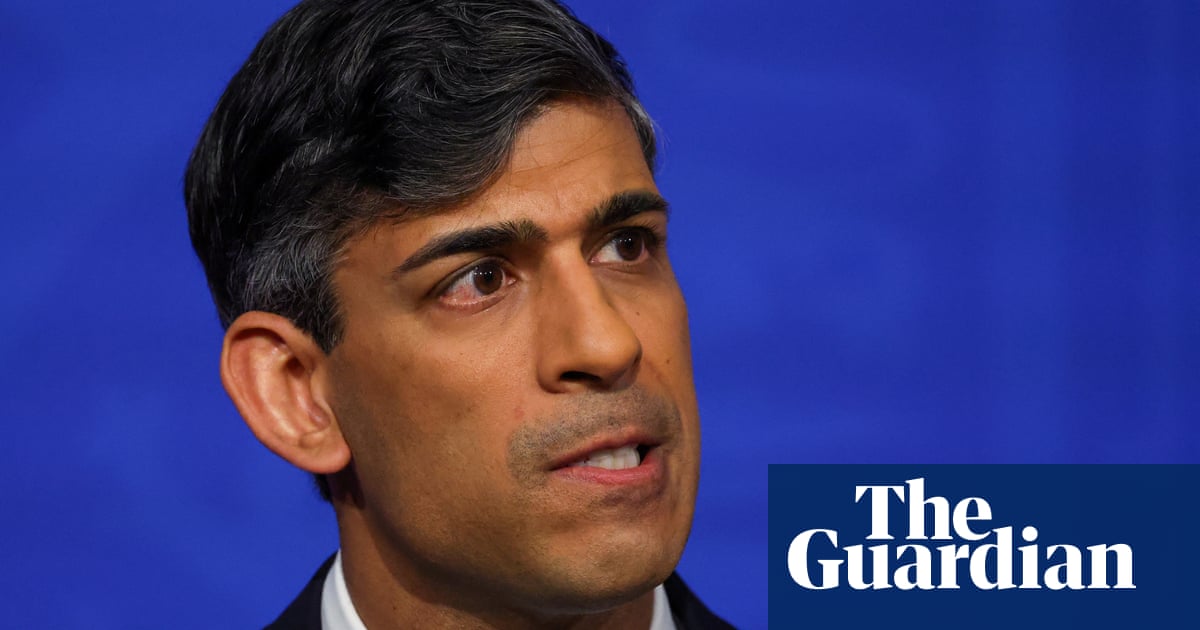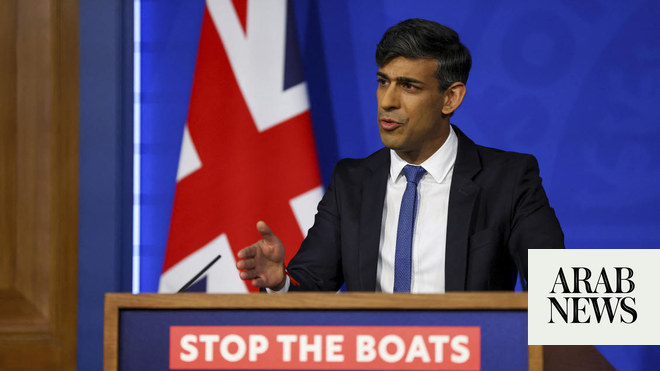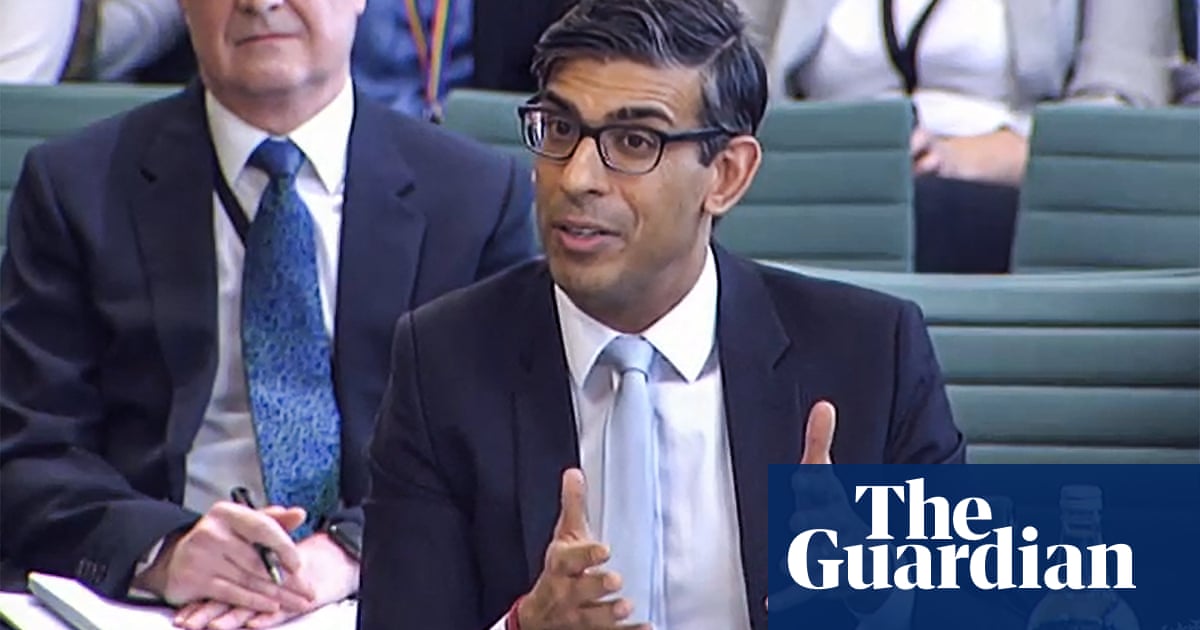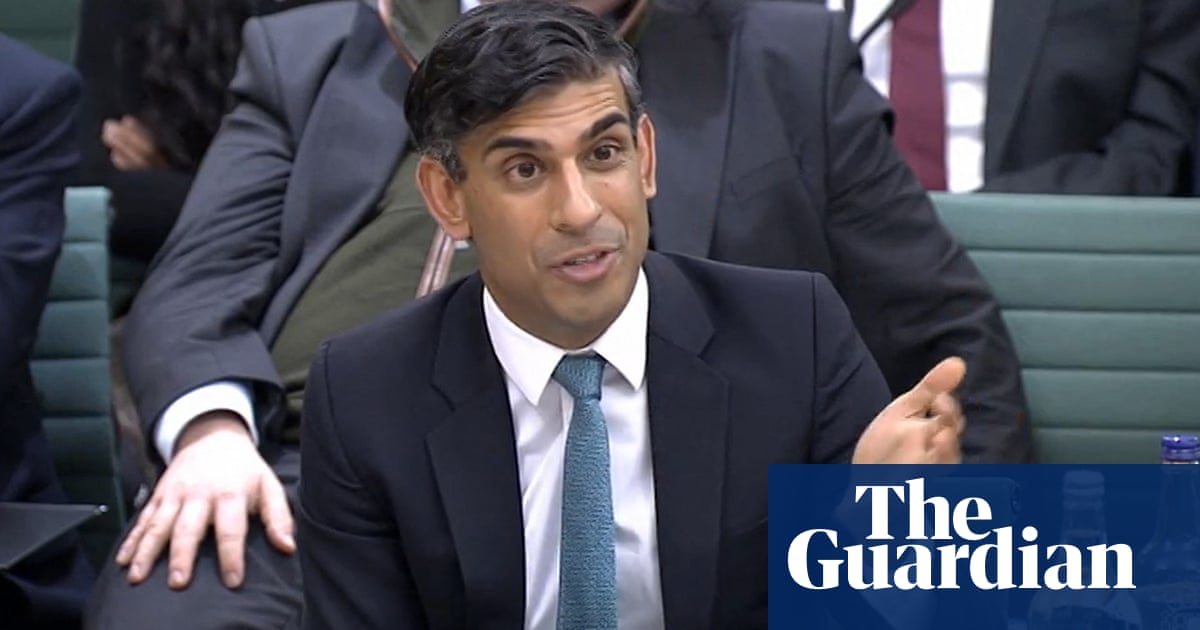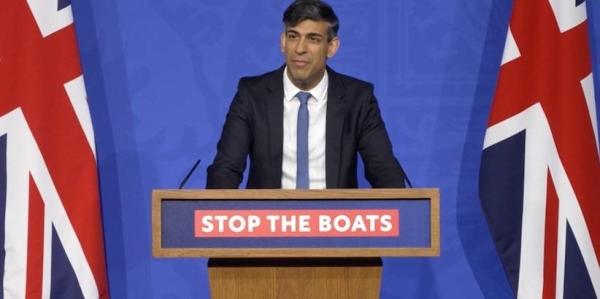
The first flights deporting asylum seekers to Rwanda will take off in 10 to 12 weeks Rishi Sunak has announced — missing his original spring target.
The government has already prepared an airfield and secured charter plane slots to ensure flights take off, the PM said.
Sunak promised to keep MPs and Lords late into the night on Monday to pass his flagship Rwanda bill. “No ifs, no buts, these flights are going to Rwanda,” he said.
He told a Downing Street press conference: “The first flight will leave in 10 to 12 weeks.
“Of course, that is later than we wanted but we have always been clear that processing will take time and if Labour peers had not spent weeks holding up the bill in the House of Lords to try to block these flights altogether we would have begin this process weeks ago.”
Sunak said he will work to “a drumbeat of multiple flights a month” throughout the summer, “because that’s how you build a systematic deterrent and that’s how you’ll stop the boats,” he said.
To smooth the approach to the first flights taking off, Sunak said the Home Office had been building extra space in the asylum process, including:
• 200 case workers hired
• 25 courtrooms and 150 judges to hear asylum cases, offering 5,000 days in court
• Hardening rules around European Court of Human Rights injunction, making it difficult for the Strasbourg-based court to halt deportation flights
• A pre-booked airfield with slots for commercial charter flights to Rwanda booked
• 500 escorts for the flights, with 300 more in training.
The prime minister announced immigration detention spaces have increased to 2,200 in preparation to send asylum seekers to Rwanda.
But this only enough to hold a fraction of the 52,000 people earmarked for deportation under the government’s plans.
Shadow home secretary Yvette Cooper denied Labour were blocking the bill, saying the government “has an overall majority in Parliament and could have passed this bill a month ago if they had scheduled it”.
“But as we know Rishi Sunak always looks for someone else to blame,” she added.
Labour would enhance border security rather than spend “half-a-billion pounds for a scheme that will only cover 1% of asylum seekers”, Cooper said.
The shadow home secretary said the government should use the money to “boost border security”.
Liberal Democrat leader Sir Ed Davey said: “No amount of soundbites or spin can change the fact that the Conservatives’ Rwanda scheme is a colossal failure.
“Millions of pounds and years of government attention have already been wasted, with absolutely nothing to show for it.”
Sunak’s announcement comes as a prolonged stand-off between the Lords and the Commons over the bill comes to a head — with both Houses of Parliament scheduled to sit late into the night to get the bill passed.
Peers have been pushing for a change to the bill that would establish a committee to monitor the safety of asylum seekers in Rwanda, operating outside the country’s own judiciary
Under the amendment, the first flights could not take off until the committee had deemed Rwanda safe.
Asked about that proposal, Mitchell, the senior Foreign Office minister in the Commons, said: “Some of the discussions that have gone on in the Lords about the judicial arrangements, the legal arrangements within Rwanda, have been patronizing and in my view border on racism.”
Last week, peers also backed an amendment that would exempt asylum seekers from Afghanistan, who had previously assisted British troops when the military was stationed there, from being among those forced to fly out to Rwanda.
Peers want their two amendments added to the bill before they will ratify it, which is required before the government can pass it into law.
MPs will vote on the bill and its amendments from the Lords on Monday afternoon.
This ping pong between the two Houses of Parliament could go on until either the government concedes and makes concessions, or peers give up on their suggested amendments — a process which could go on until late into the night.
Mitchell said the regime in Rwanda had made a “remarkable” turnaround over the last 30 years after nearly being “completely destroyed by the genocide”.
“Kigali is arguably safer than London,” he said. “It is time for the Lords, which is a revising chamber, to accept the will of the elected chamber,” he added.
Lord Carlile, a member of the House of Lords who opposes the Rwanda plan, told BBC Radio 4’s Today program he and his fellow peers would “keep going as long as necessary” and not back down over their amendments.
He said Rwanda had “not yet complied with the treaty” it signed with the UK, referring to the UK-Rwanda treaty signed in December.
The Safety of Rwanda Bill is central to Sunak’s plans to “stop the boats” — arguing the scheme would acts as an effective deterrent for people who cross the Channel in small boats.
Effectively, the legislation would drastically limit the grounds for legal challenges to the Rwanda scheme and it gives ministers the power to disregard some human rights law.
The scheme was first introduced on April 14, 2022 by then-prime minister Boris Johnson, but no asylum seeker has yet been sent to Rwanda — a landlocked country in central Africa — 4,000 miles (6,500km) from the UK.
The first flight was scheduled to go in June 2022, but was canceled after legal challenges.
Further obstruction came in November 2023, when the UK Supreme Court ruled unanimously that the Rwanda scheme was unlawful.
After the Supreme Court ruling, the government introduced then this Safety of Rwanda bill as “emergency legislation”, which aims to make clear in UK law that Rwanda is a safe country.
Critics say the scheme will put people at risk, and the legislation undermines the independence of the courts.
Former home secretary Suella Braverman told the Today program the bill had “too many loopholes” which would prevent it from having the “deterrent effect that is necessary to break the people smuggling gangs”.
And she said it was vulnerable to “last-minute injunctions” by the European Court of Human Rights, adding: “The simple fact is this is our third act of Parliament that the government has introduced in four years to stop the boats.” — BBC




